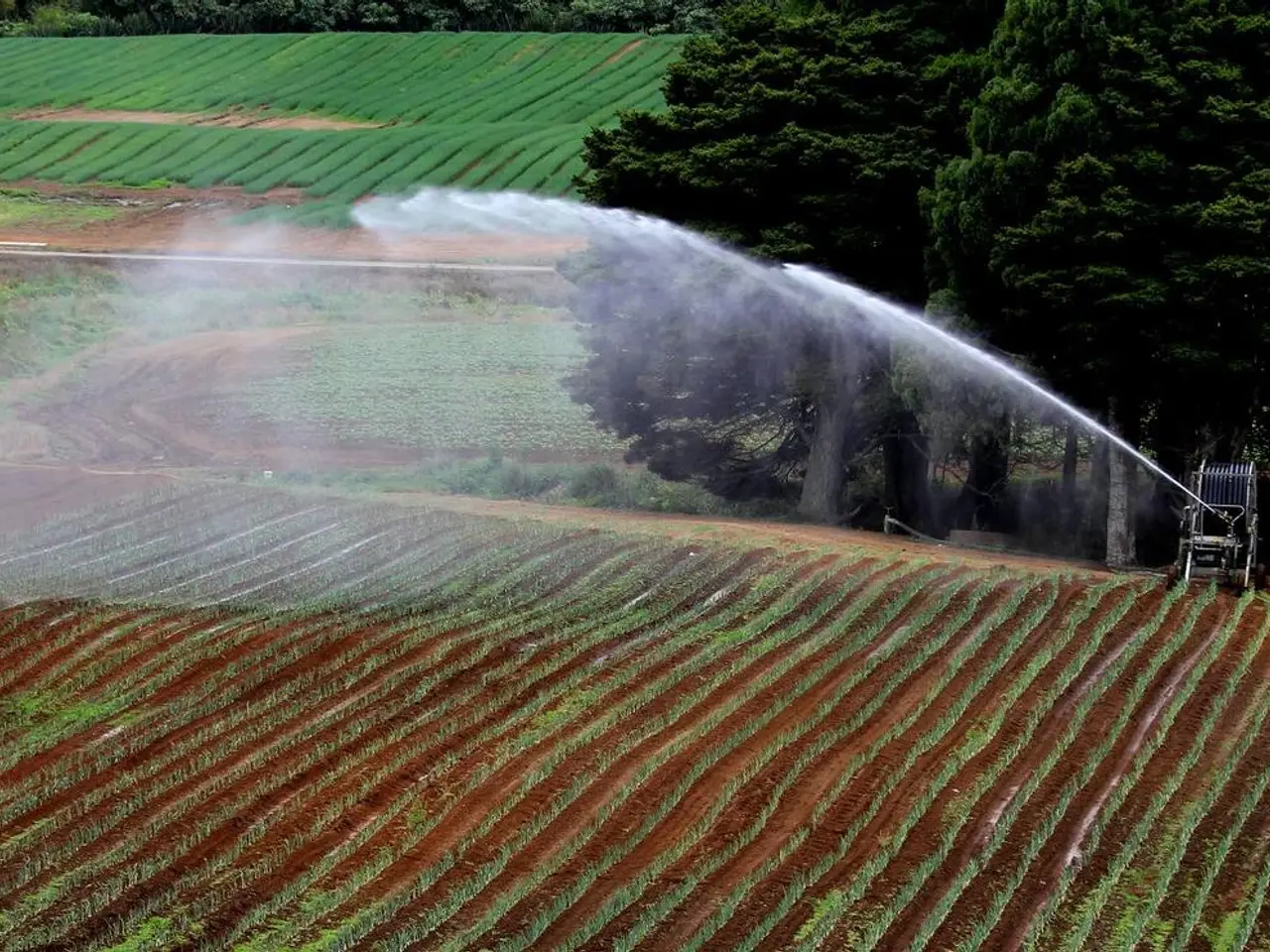Shifting Towards an Economic Model Based on Permaculture Practices
In an effort to create more resilient and eco-friendly communities, the Transition Town Movement and similar initiatives are embracing a combination of sustainable finance solutions and permaculture funding strategies. This approach aims to foster local food systems, clean energy, and circular economies, all while adhering to the principles of permaculture.
Permaculture: A Holistic Approach to Sustainable Living
Permaculture is a design system that focuses on creating sustainable living systems for agriculture and architecture. It involves designing systems that are beneficial for the planet, using locally available resources, and ensuring a variety of life within the system. Key steps in implementing permaculture include water conservation, clean energy usage, and the creation of ecosystems that support a wide range of species.
Sustainable Finance: Bridging the Gap
Sustainable finance plays a crucial role in supporting local permaculture projects. One such approach is Transition Finance, which directs capital not only to already green activities but also to higher-emitting sectors to help them decarbonize and transition over time. Other strategies include co-investment frameworks, public policies and programs, innovative finance approaches, and direct private financing for pilot projects in sustainable technologies.
These integrated approaches seek to overcome investment barriers, attract capital into sustainable local projects, and improve access to finance for climate and sustainable development projects. They aim for real-world impact, focusing on cheaper energy, resilient supply chains, and a just and fair transition.
Supporting Grassroots Movements
Grassroots movements are at the forefront of spreading permaculture and moving towards a green economy. Organisations like RSF Social Finance Seed Fund and the Soils, Food and Healthy Communities provide grants to support permaculture projects, while initiatives such as the Organic Agriculture Research and Extension Initiative offer funding for organic farming research and education.
Crowdfunding platforms also prove useful in funding local permaculture projects, providing an accessible avenue for individuals and communities to support these initiatives.
The Future of Permaculture
As more people, communities, and leaders see the value of green investments, the future of permaculture looks promising. By focusing on sustainability, fairness, and community-led economies, permaculture projects can help grow food sustainably, protect nature, and help those who are less fortunate.
However, permaculture projects often struggle with funding, highlighting the need for continued support from sustainable finance solutions, grants, crowdfunding, and socially responsible investing. By collecting and sharing data to show the real benefits of permaculture, we can encourage further investment and ensure a bright future for sustainable local economies.
- The Transition Town Movement encourages water conservation practices to support sustainable living.
- Permaculture design systems are created to be beneficial for the planet and provide a variety of life.
- Key steps in implementing permaculture include clean energy usage and the creation of ecosystems.
- Sustainable finance solutions are crucial in supporting local permaculture projects.
- Transition Finance directs capital towards higher-emitting sectors for decarbonization.
- Co-investment frameworks are part of sustainable finance strategies to attract capital.
- Public policies and programs are implemented to support climate and sustainable development projects.
- Innovative finance approaches are used to overcome investment barriers.
- Direct private financing is provided for pilot projects in sustainable technologies.
- Grassroots movements are essential in spreading permaculture and moving towards a green economy.
- RSF Social Finance Seed Fund offers grants to support permaculture projects.
- Soils, Food and Healthy Communities also provide grants to support permaculture projects.
- The Organic Agriculture Research and Extension Initiative offers funding for organic farming research and education.
- Crowdfunding platforms provide accessible avenues for individuals and communities to support local permaculture projects.
- As more people see the value of green investments, the future of permaculture looks promising.
- Sustainability, fairness, and community-led economies are critical in growing food sustainably.
- Permaculture projects protect nature and help those who are less fortunate.
- Funding remains a challenge for many permaculture projects.
- Continued support from sustainable finance solutions, grants, crowdfunding, and socially responsible investing is essential.
- By collecting and sharing data, we can encourage further investment in sustainable local economies.
- Climate change raises concerns for biodiversity and soil health within local communities.
- Regenerative farming practices are being advocated to improve soil health and biodiversity.
- Regenerative agriculture is seen as a solution to address climate change and promote sustainability.
- Sustainable living extends to lifestyle choices, such as food and drink consumption.
- Choosing locally sourced, organic food contributes to healthier communities and biodiversity.
- Education and self-development are also crucial elements in supporting permaculture and sustainable living.
- Learning skills in sports, such as soccer, football, or tennis, can empower individuals with personal growth and career development.
- Policy and legislation play an essential role in ensuring the growth and sustainability of local food systems and clean energy initiatives.




